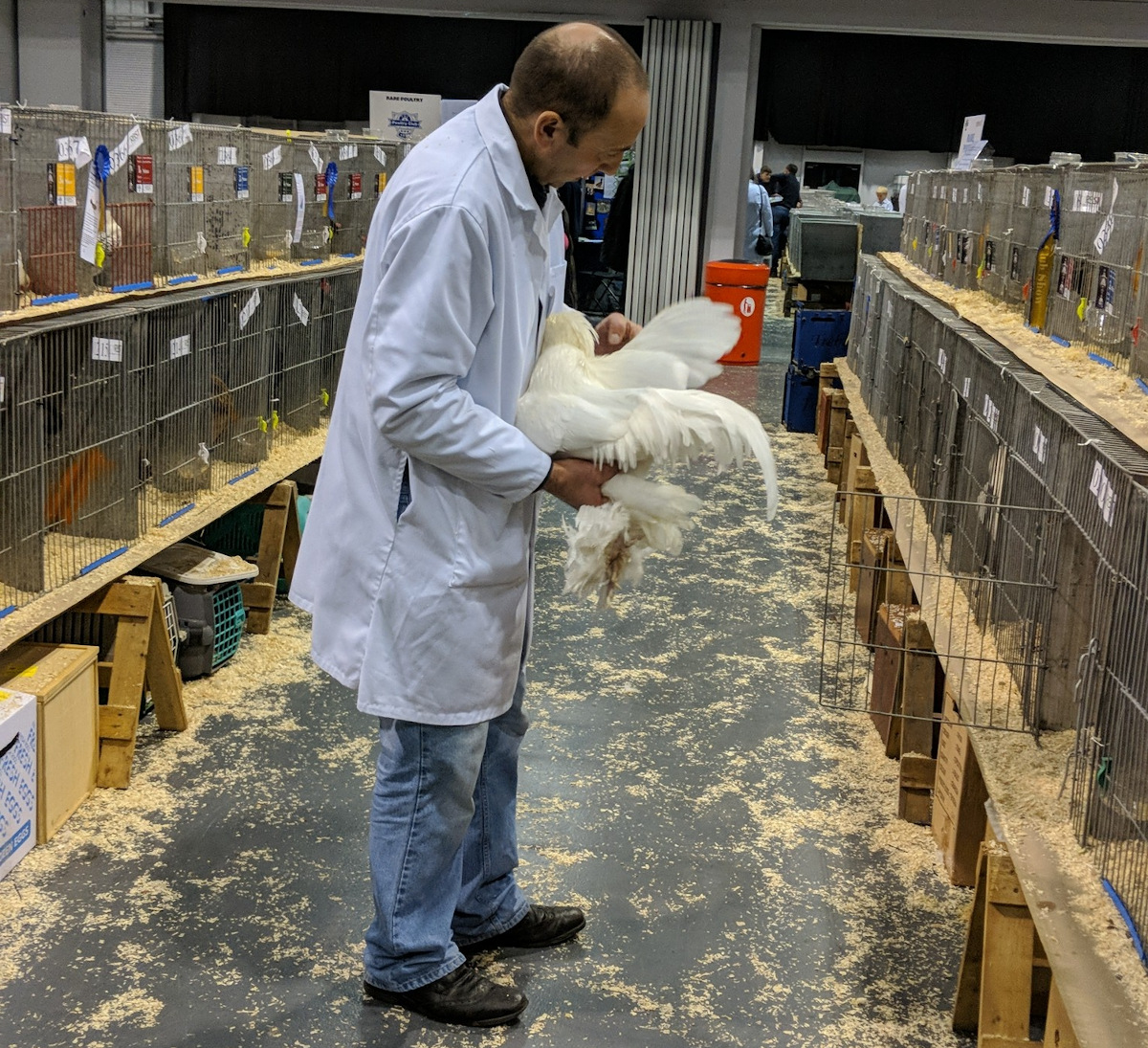
How do you show chickens?
A poultry show is a type of livestock pageant where any poultry or eggs can be judged. Anyone can enter a poultry show and there are classes for almost every type of chicken.
Most commonly the birds on show are chickens, ducks, turkeys and geese. Pigeons are often shown but are not always classed as poultry.
Poultry shows range in size from local county fairs where a few hundred chickens might be shown to national shows where several thousand birds compete for a multitude of titles.
Below: The UK national show takes up two exhibition halls and has thousands of birds on display.
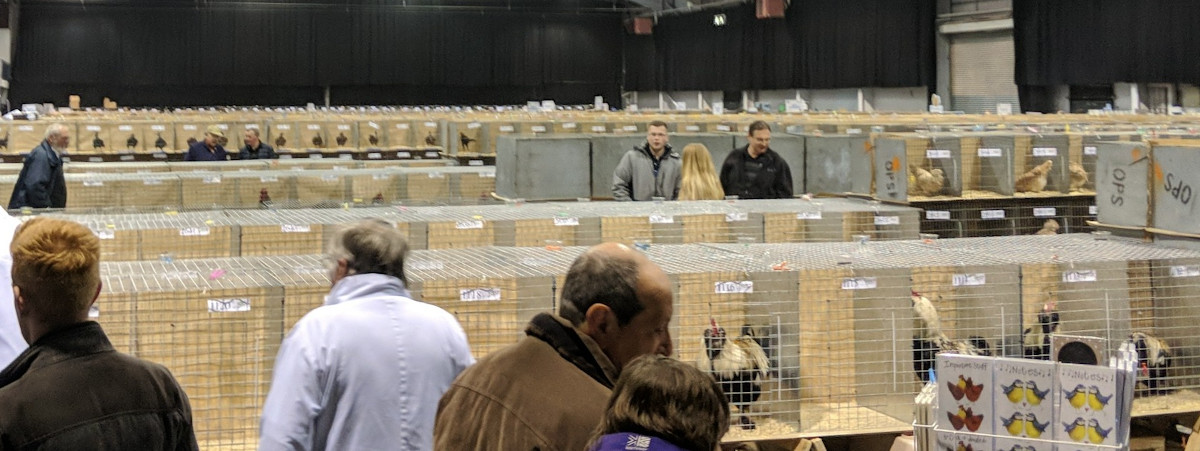
The first poultry show was held in the United kingdom in 1845 and the first american show was on the 15 and 16th of November, 1849. Exhibiting poultry was promoted as an alternative to cock fighting in the United Kingdom which was banned in 1849.
What can be exhibited at poultry shows?
There are dozens of categories in which to exhibit, all types of poultry, chickens, eggs and even art can be shown:
- Chickens,
- Ducks,
- Turkeys,
- Geese,
- Eggs,
- Chicken, poultry or egg related art.
Below: Egg painting and carving at the UK National poultry show.
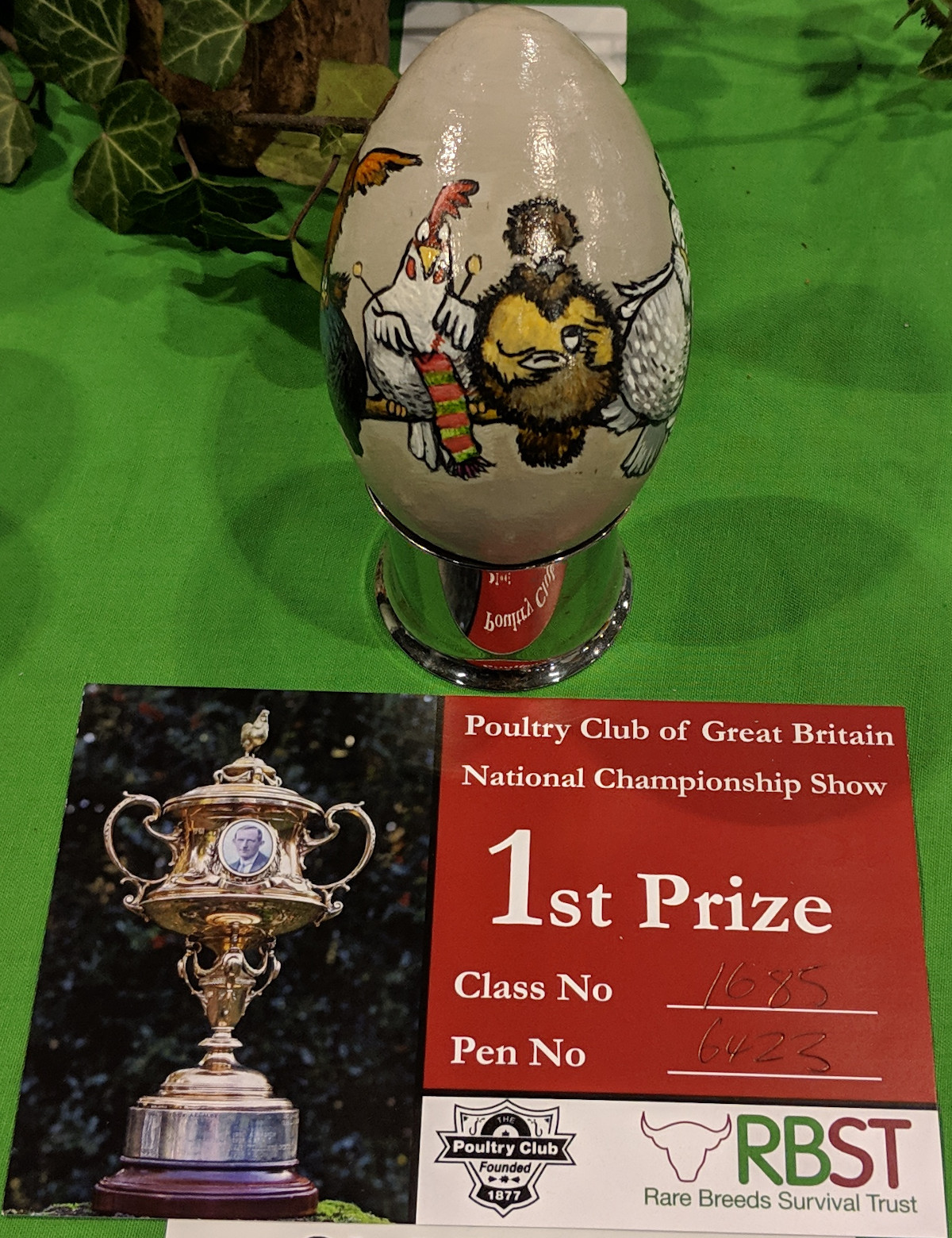
Getting started showing chickens is a process that can take more than a year.
As a rule you need to compete at a local level before entering your chickens at regional or national level.
To enter a poultry show you need decide which categories you are going to compete in, then fill out your entry form and pay a small fee.
Below: The paper work can often be a little confusing for first timers as poultry show categories are numbered. You can see the four digit numbers attached to the different class in this egg show.
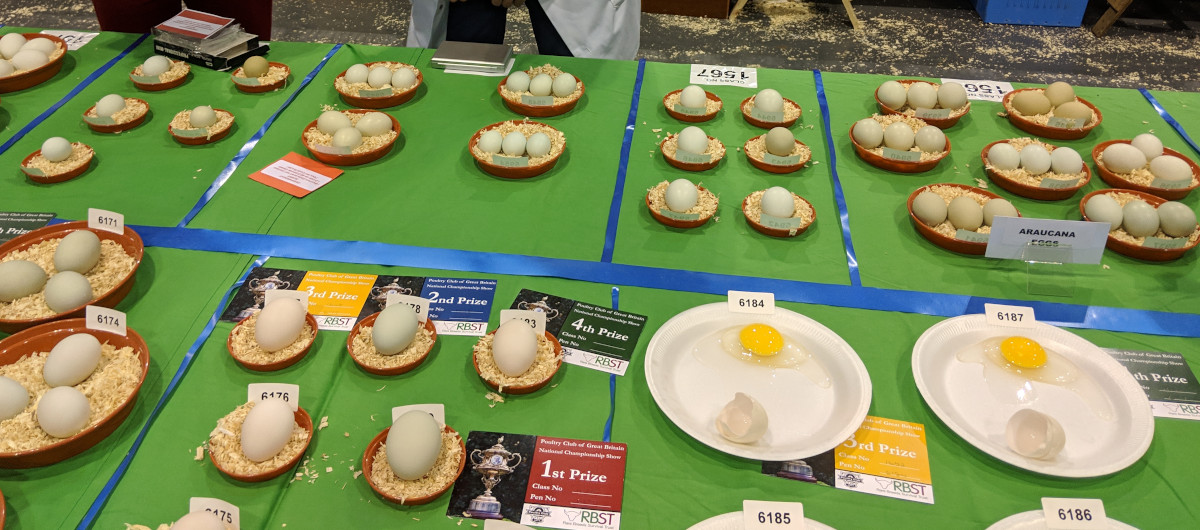
Chickens have to be a certain age to be shown and it takes time to cage train the birds you intend to show.
Some of my chickens are not naturally happy in cages and it has taken me as long as 16 weeks to cage train a chicken for a poultry show.
Why do people want to show their chickens?
People like show their birds to satisfy their desire for competition or to see how good their chickens do in comparison to others people birds or they do it just for fun.
Below: The prestige that comes with winning drives most chickens fanciers to exhibit their birds.
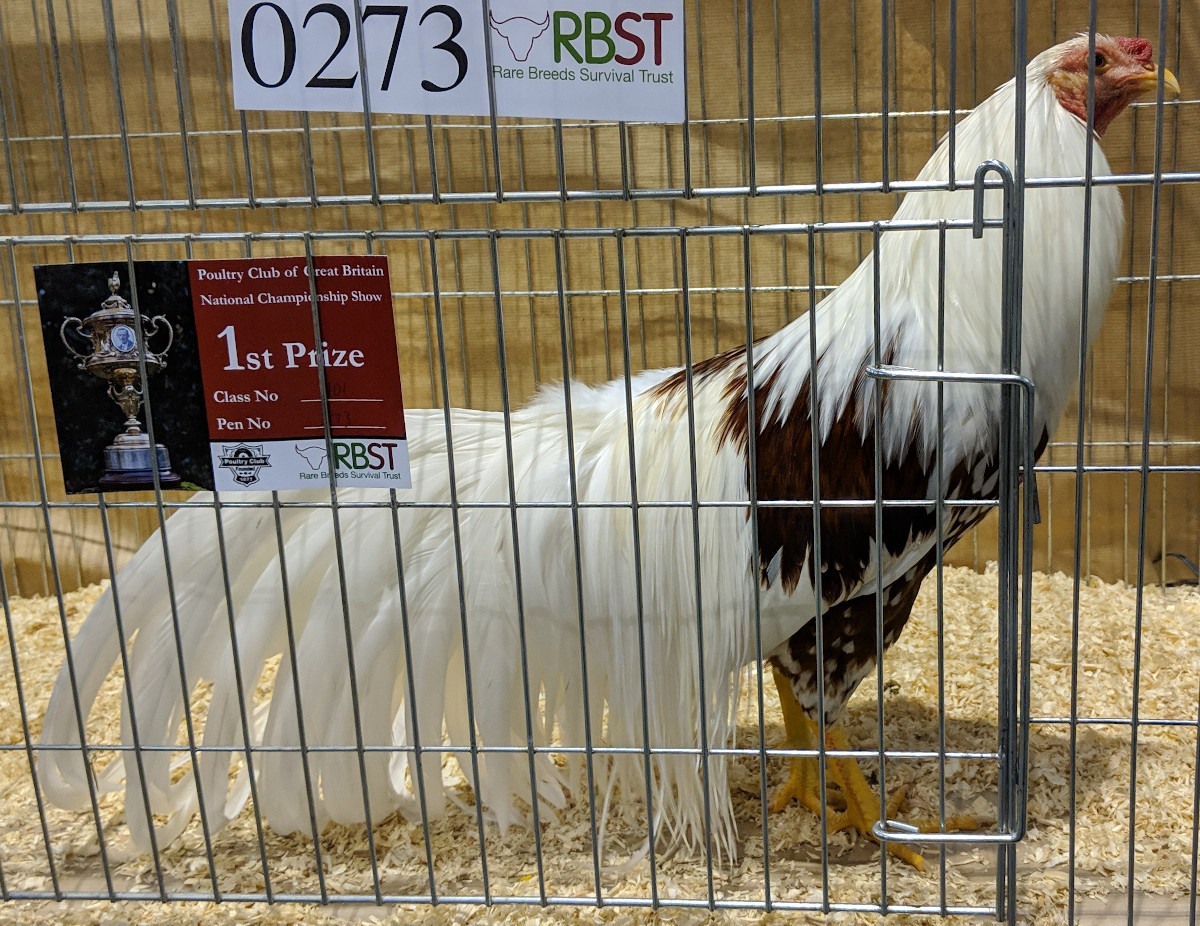
Chicken keeping is different the world over and standards may differ as well. In the US for example your birds must be clean by NPIP standards before you can legally show them.
How to find poultry shows?
The most reliable way to keep up with upcoming shows is to join the your local poultry club, become a member of the national poultry club or subscribe to a poultry magazine like poultry press.
Shows normally start to be held during the spring and early summer but the largest and most important ones are usually held in the fall and early winter months.
How do you show a chicken in 4-H?
4-H is a network of youth organisations involved in practical and hands on learning.
Chicken keepers exhibiting poultry in the 4-H category will likely be asked questions on poultry husbandry and will have to demonstrate their ability to handle the chicken as well.
This class is exclusively for younger people.
How do chicken shows work?
At it's most basic level chickens shows work by dividing chickens into classes and then comparing them against the standards of perfection to find a winner.
The winners of the breed classes then go on to compete at the next level. As an example, all the winners at breed level in the large fowl soft feather class are judged and the best is chosen. The class winners then go on to the best in show.
Below: The Serama is the only chicken to be judged on its attitude.
Judging criteria are breed dependant, Serama bantams for example are never judged on colour but their behaviour and attitude in the cage makes up a percentage of their final score.
Step by step guide to showing chickens:
Attend a show as a spectator before so as you know what to expect.
- Register for the event,
- Decide which classes you want to compete in,
- Pay your entry fee,
- Choose the birds or eggs you want to show,
- Plan on how to feed and water your birds while they are in cages,
- Cage train your chickens with treats,
- Get your birds used to being handled,
- Wash and groom and dry the birds if they need it.
- Arrive at the show and pen up your birds,
- Watch the judges and ask questions.
Don't be afraid to fail, successful exhibitors often have 20 or more years experience under their belt.
